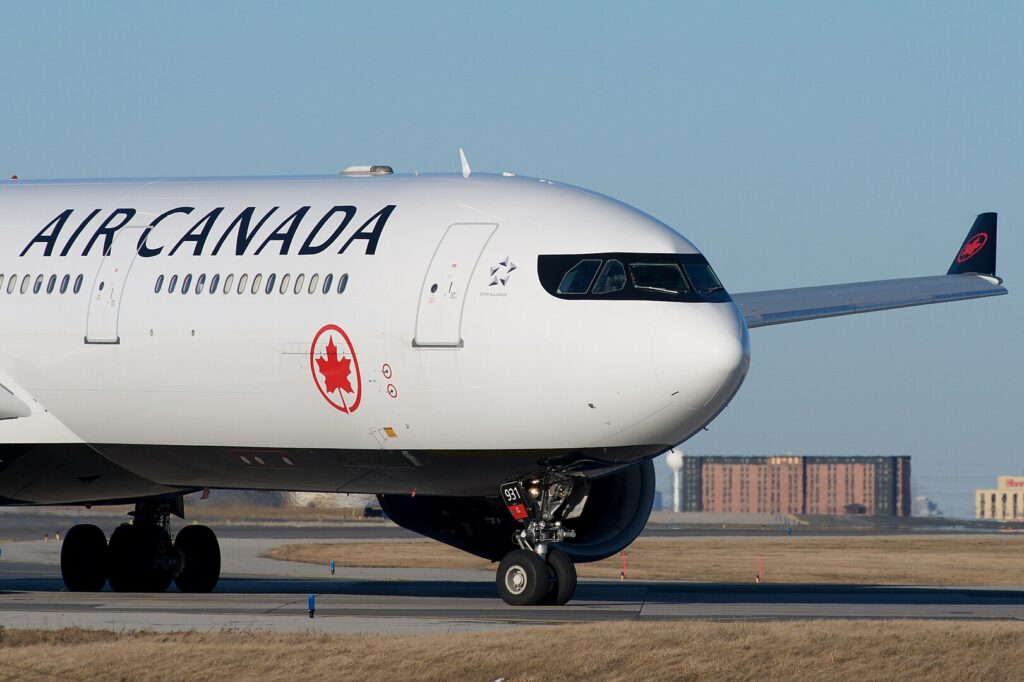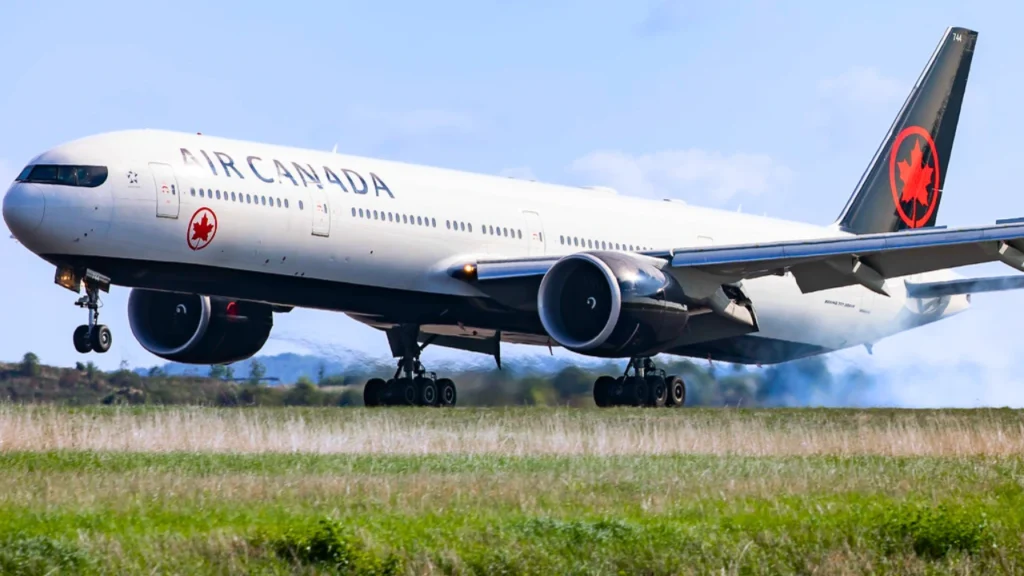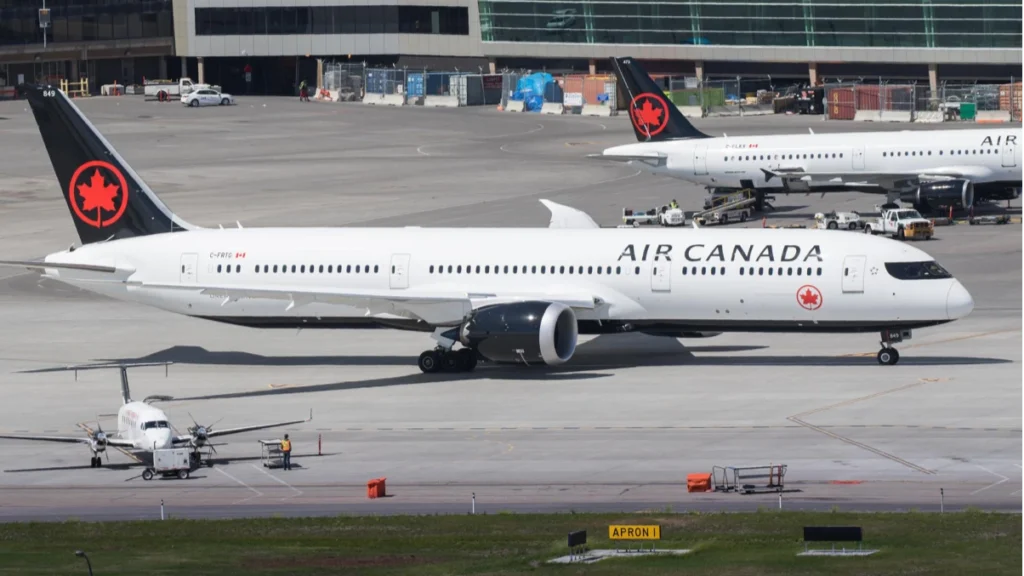
MONTREAL- Air Canada (AC) is facing intense criticism after suspending staff travel privileges just days before a planned strike by its flight attendants. The dispute centers on a policy change affecting crew members who rely on discounted standby tickets to travel for work or return home.
The Canadian Union of Public Employees (CUPE), representing 10,000 flight attendants, announced the strike would begin on August 16.
The decision impacts operations at Toronto Pearson Airport (YYZ), Vancouver Airport (YVR), and other key hubs, raising concerns over travel disruptions nationwide.
 Representative Photo: Air Canada
Representative Photo: Air CanadaAir Canada Suspends Staff Travel
On August 13, 2025, Air Canada (AC) suspended the use of discounted standby tickets for employees, citing the need to preserve available seats ahead of a full operational shutdown.
According to PYOK, the airline stated the move was not punitive but intended to prioritize commercial passengers.
However, discounted staff travel only applies when spare seats exist, making the explanation contentious among employees.
The travel suspension created immediate challenges:
- Flight attendants commuting to base cities were blocked from reaching work before the strike.
- Overseas staff on personal trips or company business were stranded without repatriation support.
- Employees returning from international assignments faced the same restrictions.
Within hours, Air Canada amended the policy to allow commuting crew to reach their home base and to permit stranded staff to return to Canada. The embargo remains in place until at least August 23 and could be extended if the strike continues.
 Photo: By BriYYZ from Toronto, Canada – Air Canada Airbus A330-300 C-GFAF, CC BY-SA 2.0, https://commons.wikimedia.org/w/index.php?curid=67447893
Photo: By BriYYZ from Toronto, Canada – Air Canada Airbus A330-300 C-GFAF, CC BY-SA 2.0, https://commons.wikimedia.org/w/index.php?curid=67447893Labor Dispute
CUPE filed a formal strike notice after contract talks stalled. Under Canadian labor law, the union must provide 72 hours’ notice, which is why the strike will begin on August 16.
In response, Air Canada issued a lockout notice, stopping pay for flight attendants once the strike begins.
The airline has announced a phased reduction in operations, with cancellations starting August 14, increasing on August 15, and a complete cessation of flying for both Air Canada and Air Canada Rouge (RV) on August 16.
Unlike some global carriers, Air Canada cannot legally hire temporary replacement flight attendants, making a shutdown more likely.
 Photo: Clément Alloing
Photo: Clément AlloingOperational and Strategic Considerations
Air Canada’s decision to halt operations serves two purposes:
- Financial Pressure: By locking out workers, the airline stops payroll expenses during the strike.
- Public and Government Leverage: A complete shutdown highlights potential travel chaos, potentially pressuring the government to intervene through binding arbitration.
So far, Ottawa has not taken formal steps to end the dispute. CUPE has expressed willingness to resume talks, but Air Canada has not accepted the offer.
 Photo: Air Canada
Photo: Air CanadaFuture Outlook
Travelers flying from major Canadian airports should expect widespread cancellations and significant delays from August 14 onward.
Those booked between August 14 and August 23 are advised to monitor flight updates closely and explore alternative travel arrangements.
For staff, the suspension of travel benefits, especially for commuting flight attendants, remains a significant point of contention.
The resolution will likely depend on whether negotiations resume before the strike’s full impact is felt.
Stay tuned with us. Further, follow us on social media for the latest updates.
Join us on Telegram Group for the Latest Aviation Updates. Subsequently, follow us on Google News
Air Canada Plans 72-Hour Lockout Notice to CUPE Amid Strike Threat
The post Air Canada Suspends Staff Travel Ahead of Flight Attendant Strike appeared first on Aviation A2Z.









